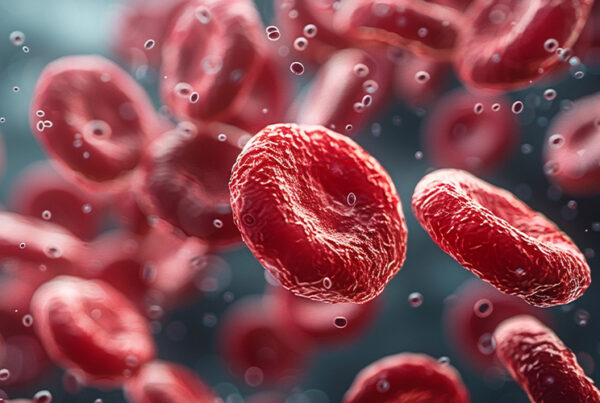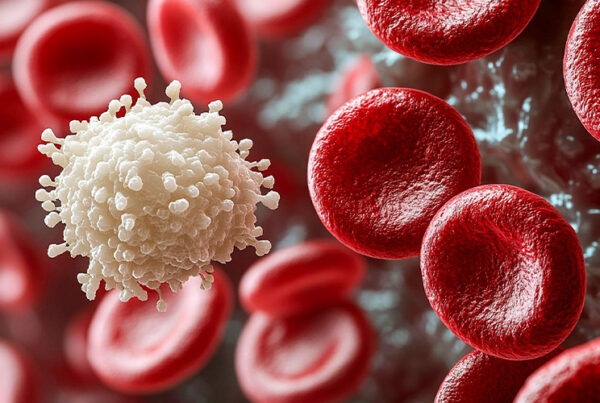
Cervical lymph nodes are small nodes or glands in the neck that play a crucial role in immune defense. These nodes filter out harmful substances, helping your body fight infections. Swelling in the neck can indicate an underlying issue, ranging from minor infections to serious conditions like head and neck cancer. The cervical lymph nodes, located along the neck’s internal structures, are particularly important in detecting infections and diseases.
When these lymph nodes swell, it may result from bacterial or viral infections, autoimmune conditions, or even a reaction to certain medications. Most cases resolve once the underlying cause is treated. However, persistent swollen cervical lymph nodes that feel hard, irregular, or painful may require medical attention, especially if accompanied by fever, night sweats, or unexplained weight loss.
Symptoms of Swollen Cervical Lymph Nodes
Swollen lymph nodes can appear in one area of the body, often due to a local infection or early-stage cancer. They can also affect multiple areas, which may happen with a systemic disease or advanced cancer. Symptoms vary based on the underlying cause.
Common Symptoms:
- Swelling in the neck, armpit, or groin
- Hardened bumps beneath the skin, especially in small nodes or glands in the neck
- Visible lumps in the neck, armpit, or behind the ear
- Tenderness, warmth, or redness in the affected area
- Fever and chills
- Fatigue and body aches
- Persistent swelling that does not reduce over time
If swollen cervical lymph nodes remain firm, grow larger, or occur with night sweats or unexplained weight loss, consult a healthcare provider immediately.
Causes of Swollen Cervical Lymph Nodes
Swollen cervical lymph nodes develop when the immune system responds to infections, inflammation, or serious conditions. These small nodes or glands in the neck filter harmful substances, causing temporary or persistent swelling.
Common Causes:
- Infections: Bacterial or viral infections, such as colds, flu, strep throat, or tonsillitis, often lead to swelling in the neck.
- Skin Conditions: Acne, scalp infections, or inflammation from hair treatments can irritate the deep cervical lymph nodes.
- Dental Issues: Tooth infections, gum disease, or abscesses may contribute to swollen cervical lymph nodes.
- Cancer: Lymphomas, including head and neck cancer, can cause persistent swelling in the neck. Follicular lymphoma is a slow-growing type of non-Hodgkin’s lymphoma that may lead to swollen cervical lymph nodes over time. Early diagnosis can help manage the condition effectively.
- Medications: Certain drugs can provoke an immune response, leading to swollen cervical lymph nodes.
Can allergies cause swollen lymph nodes:
Certain drugs and allergies can trigger an immune response, leading to swollen cervical lymph nodes. Many people wonder, can allergies cause swollen lymph nodes? The answer is yes—seasonal allergies or reactions to allergens can sometimes result in temporary swelling in the neck.
If swollen cervical lymph nodes persist, cause discomfort, or grow larger, medical evaluation is necessary.
Diagnosis of Swollen Cervical Lymph Nodes
Doctors diagnose swollen cervical lymph nodes by examining the neck and assessing overall health. They may perform additional tests to determine the underlying cause of the swelling in the neck.
Medical Evaluation Includes:
- Physical Examination: A doctor feels for enlarged small nodes or glands in the neck to check for tenderness, firmness, or irregular shapes.
- Medical History Review: They ask about personal and family medical history, existing health conditions, and recent illnesses.
- Lifestyle and Environmental Factors: Doctors assess recent travel, exposure to infectious diseases, medication use, and potential toxin exposure.
Diagnostic Tests:
- Blood Tests: Identify infections, autoimmune diseases, or abnormal blood cell counts.
- Throat Culture: Detects bacterial infections like strep throat.
- Imaging Tests (CT, MRI, X-ray): Provide detailed views of deep cervical lymph nodes to check for abnormalities.
- Biopsy: If needed, a sample is taken from swollen cervical lymph nodes to test for head and neck cancer or other serious conditions.
Early diagnosis helps determine if the swelling in the neck is temporary or linked to an underlying disease, ensuring timely treatment.
Treatment for Swollen Cervical Lymph Nodes
The treatment for swollen cervical lymph nodes depends on the underlying cause. In many cases, the swelling resolves once the primary condition is treated.
Common Treatment Approaches:
Infections:
- Viral infections (cold, flu, mononucleosis) usually improve with rest, hydration, and over-the-counter pain relievers.
- Bacterial infections (strep throat, dental infections) require antibiotics to reduce swelling in the neck.
Inflammation and Skin Conditions:
- Treating acne, scalp infections, or allergic reactions can help shrink small nodes or glands in the neck.
- Anti-inflammatory medications may relieve swelling in the deep cervical lymph nodes.
Autoimmune Diseases:
- Conditions like lupus or rheumatoid arthritis may require corticosteroids or immunosuppressants.
- Managing inflammation helps reduce swollen cervical lymph nodes.
Cancer Treatment:
When head and neck cancer or lymphoma causes persistent swelling, doctors may recommend chemotherapy, radiation, or surgery. In cases of bulky lymphoma disease, where lymph nodes grow significantly larger than normal, more aggressive treatment may be necessary to shrink the enlarged nodes.
If swelling in the neck persists, worsens, or is accompanied by unexplained weight loss, night sweats, or prolonged fever, seeking medical advice is crucial.
Types of Cervical Lymph Nodes
Cervical lymph nodes are divided into different categories based on their location. These include posterior cervical lymph nodes, anterior cervical lymph nodes, and superficial cervical lymph nodes. Understanding the different levels of lymph nodes in the neck is essential for identifying infections, inflammation, or potential signs of cancer.
Advancing Cancer Treatment Through Clinical Trials
Oncology clinical trials play a crucial role in advancing cancer treatment by testing new therapies, targeted drugs, and immunotherapies. These trials offer patients access to cutting-edge treatments that may improve outcomes and quality of life.
Ongoing follicular lymphoma clinical trials are exploring innovative therapies to manage this slow-growing form of non-Hodgkin’s lymphoma. These studies evaluate potential treatments aimed at improving remission rates and long-term survival. If you or a loved one has follicular lymphoma, consider enrolling in a clinical trial to access innovative new treatment options.
Furthermore, ongoing Mantle Cell Lymphoma (MCL) clinical trials are investigating new treatment strategies to improve Mantle Cell Lymphoma treatment options and patient outcomes. These trials focus on targeted therapies designed to enhance response rates and extend remission. By participating in an MCL clinical trial, patients may gain access to emerging treatments that could improve disease management and survival rates.
Conclusion
Persistent swelling in the cervical lymph nodes may indicate infections, autoimmune conditions, or cancer. Early diagnosis through medical evaluation ensures timely treatment. Clinical trials offer potential new therapies for lymphomas. If you notice prolonged swelling, consult a healthcare provider to determine the cause and explore new treatment options.
Frequently Asked Questions
Where are the cervical lymph nodes located?
Cervical lymph nodes are found in the front, sides, and back of the neck. They include posterior cervical lymph nodes, anterior cervical lymph nodes, and superficial cervical lymph nodes, which help filter infections and harmful substances.
What causes cervical lymph nodes to swell?
Swollen cervical lymph nodes often result from infections (cold, flu, strep throat), autoimmune diseases, or head and neck cancer. Other causes include skin infections, dental issues, and inflammatory conditions.
What is stage 1 lymphoma in the neck?
In Stage 1 lymphoma, cancer is limited to a single lymph node region or nearby lymphatic tissue, without spreading to other areas of the body. Early treatment can improve outcomes.
What autoimmune disease causes swollen lymph nodes in the neck?
Autoimmune diseases like lupus, rheumatoid arthritis, and Sjögren’s syndrome can cause swelling in the neck due to immune system attacks on healthy tissues, leading to chronic inflammation.







